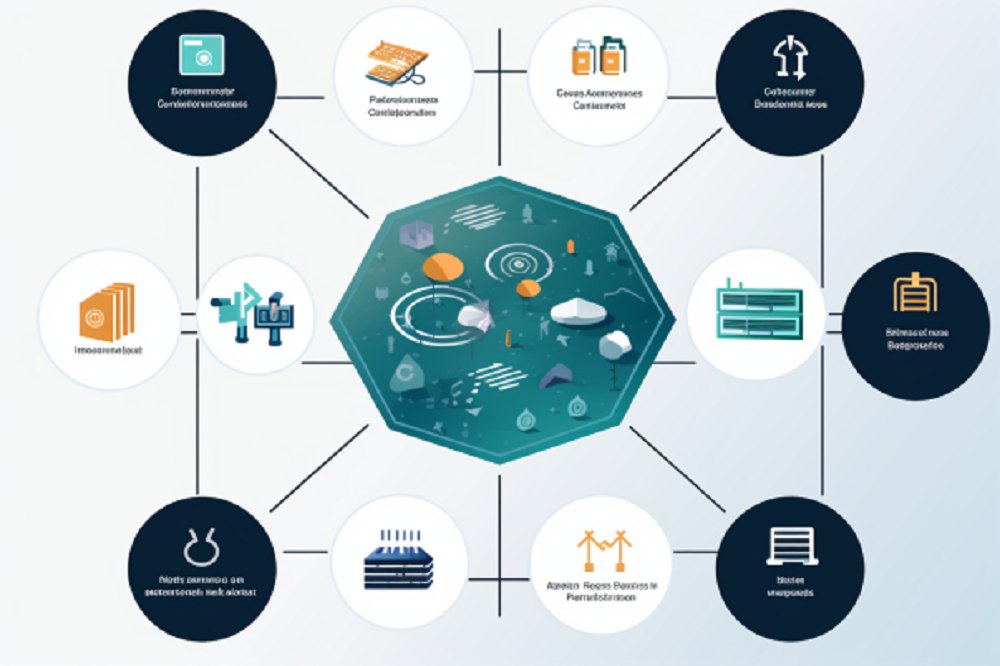What Is Blockchain Metadata?
The world of blockchain transactions is not just about exchanging cryptocurrencies like Bitcoin or Ether; it’s a realm where information holds immense value. In this ecosystem, metadata emerges as a powerful addition, offering a layer of supplementary data that transcends the fundamental function of documenting and authenticating digital transactions.
This guide overviews metadata in blockchain transactions, discussing its type, storage method, examples, challenges, and use cases. Metadata within blockchain transactions allows users to append additional context or data to their transactions, enriching the information landscape of the blockchain.
Types Of Blockchain Metadata
Blockchain metadata is in two primary forms, each serving distinct purposes and contributing uniquely to the overall ecosystem of decentralized ledger systems.
On-Chain Metadata
This form of metadata is an integral part of the blockchain and is permanently stored within each block. It’s readily accessible to anyone with access to the blockchain network.
On-chain metadata includes crucial transaction details directly related to the transaction itself.
Transaction Labels and Details: Each transaction comprises sender and receiver addresses, transaction amounts, and unique identifiers. These details contribute to the transparency and auditable nature of blockchain transactions.
References to External Contracts or Documents: Smart contracts can reference external documents or other smart contracts, simplifying complex functionalities and interactions within the blockchain network.
Token Properties and Smart Contract Data: For tokens like Ethereum’s ERC-20 and ERC-721, token names, symbols, supply details, and smart contract codes are stored as on-chain metadata. This data ensures the accurate representation and functionality of tokens within the blockchain.
Blockchain Network Information: Block timestamps, block numbers, and transaction IDs are inherent on-chain metadata, providing essential information about the blockchain’s structure and transaction history.
Off-Chain Metadata
Unlike on-chain metadata, this data type is not stored directly on the blockchain but instead referenced within transactions. It serves as a tool to reduce congestion and clutter within the blockchain network.
Links to External Content: Off-chain metadata references external content like files, documents, or URLs related to specific transactions. These references are stored off the chain through decentralized storage systems like IPFS or off-chain scaling solutions like the Lightning Network.
Decentralized Storage Systems: Utilizing platforms like the InterPlanetary File System (IPFS), blockchain transactions can reference external data stored off-chain. This method enables the storage of larger files such as images, videos, or documents without burdening the blockchain network.
Cryptographic References: Off-chain metadata often uses cryptographic hashes to refer to external content. These references ensure the integrity and security of referenced information while optimizing the blockchain’s data storage capacity.
Thus, understanding the distinction between on-chain and off-chain metadata is crucial for efficiently managing and utilizing additional information within blockchain transactions. Combining both types of metadata facilitates a more versatile, scalable, and robust blockchain ecosystem, accommodating diverse information and use cases while optimizing the network’s performance.
Examples Of Metadata In Blockchain Transactions
Metadata within blockchain transactions encompasses essential details and functionalities critical for the transparency and functionality of decentralized ledger systems.
Timestamps embedded in each block establish a chronological record of transactions.
Transaction specifics, such as sender and recipient addresses, unique transaction IDs, and transaction amounts, constitute foundational metadata elements ensuring the clarity and traceability of asset transfers.
Smart contracts utilize metadata to execute predefined conditions by incorporating parameters and input data for operation. Digital signatures verify transaction legitimacy and ownership, contributing to the network’s security and trust.
Details regarding gas fees on platforms like Ethereum aid miners and validators in prioritizing transactions and optimizing network operations.
Including links to the InterPlanetary File System (IPFS) within blockchain metadata enables access to off-chain content, facilitating storing and retrieving larger data files like images or documents related to on-chain assets.
Metadata And Blockchain Transactions
Incorporating metadata into blockchain transactions involves creating smart contracts that specify where and how metadata will be stored. For instance, on Ethereum, this involves defining variables within the contract to hold the metadata and interacting with the contract to add metadata to a transaction.
Use Cases Of Blockchain Metadata
The application of blockchain metadata extends across diverse industries, amplifying the utility and adaptability of decentralized ledger systems.
Supply Chain Management
Within supply chain management, metadata enhances traceability and transparency. It records crucial information related to product provenance, production, transportation, and quality checks.
This data makes it easy for businesses to tackle challenges such as fraud, ensure regulatory compliance, and uphold authenticity, aiding informed consumer decision-making.
Digital Identity and Authentication
Blockchain metadata securely manages personal data, granting individuals control over their information. Enterprises, governments, and educational institutions leverage this technology to streamline identity verification processes and bolster service security.
NFTs
In NFTs and digital assets, metadata enables digital collectibles’ authentication and provenance tracking, attributing value and uniqueness to each asset.
Healthcare
Within healthcare, blockchain metadata ensures secure management of patient records, preserving data integrity and privacy while facilitating efficient data access for critical medical interventions.
Challenges Associated With Blockchain Metadata
Challenges in utilizing blockchain metadata include scalability concerns, data security, and the reliability of oracles providing external data. Addressing these challenges involves implementing strategies such as layer-2 solutions, encryption for enhanced security, and diversification of data sources.
